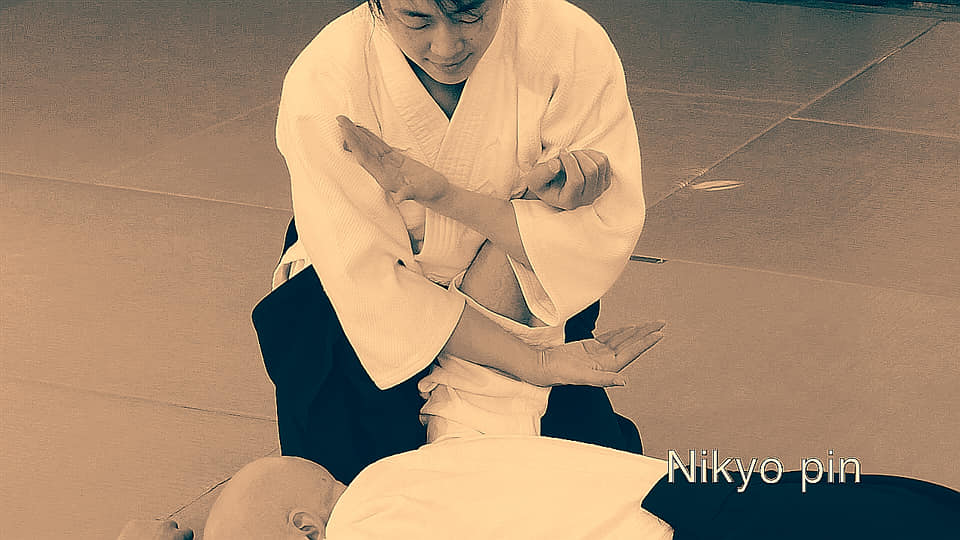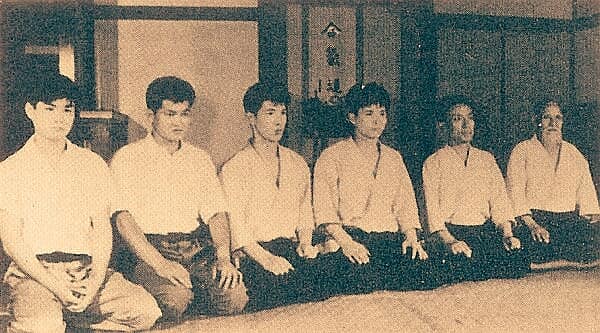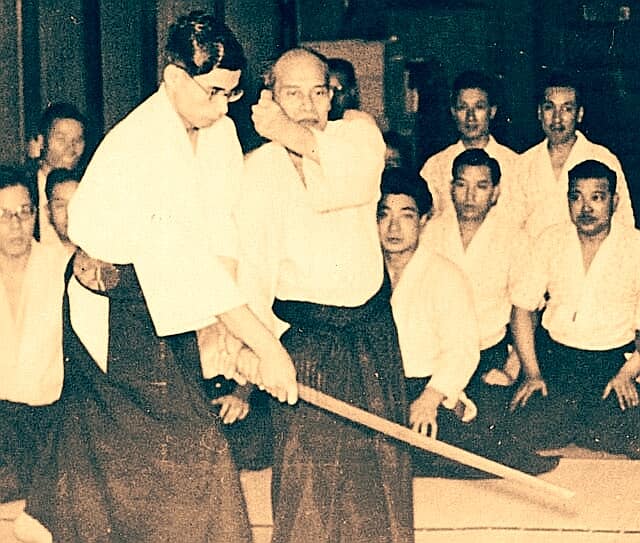“My move to Japan in 1977 marked the beginning of our first meaningful interaction. Around 1978 I had discovered a copy of the old Asahi News film of O-Sensei taken in 1935. During the Iwama Taisai of that year a string of visitors came by my house in Iwama near the dojo to view this rare old film. Among them to my surprise was Arikawa Sensei. He ended up spending several hours at my home and flattered me by saying that he preferred to stay and talk about aikido history rather than return to the dojo and participate in the party festivities after the religious ceremony.”
“Sensei was not in good health at that time and had been off the mat for about a year on doctor’s orders. He had lost a lot of weight too, but eventually made a complete recovery to resume his instructional duties which included Wednesday evening training at the Aikikai for several decades.”

“1980s I moved to Tokyo from Iwama and Arikawa Sensei was a frequent visitor to my home which also doubled as an office in Yotsuya Sanchome, not far from the Aikikai.. He would suddenly call up saying he was in the neighborhood and ask if he could stop by. Sometimes we would spend six or seven hours together and end up going out to dinner. The conversations were always centered on aikido, O-Sensei, Aikikai politics, the publication of Aiki News, and related subjects. Arikawa Sensei truly had a photographic memory.”
“I used to be amazed at how he would walk into my room filled with books and documents and proceed to scan their contents. Sensei would often spy a new item out of the many documents and ask if he could take a look at it. It seemed he had memorized every book, photo and paper in our archives.”

“My staff would dread these visits by Sensei because it would interrupt their work flow. Also, no one other than me had such an unquenchable interest in aikido history that I shared with Arikawa Sensei. Besides, many people found it difficult to understand his speech, myself included, because he talked in a scarcely audible, raspy voice.”
“I never could figure out why Sensei talked in this way until much later when he told me the story. It seems that as a student in elementary school he got into a fight during which he sustained an injury to his throat. This required an operation and he was hospitalized for a month. From that time on his larynx was damaged and it hurt him to attempt to speak in a loud voice.”
The End
Source: Aikido/Facebook



